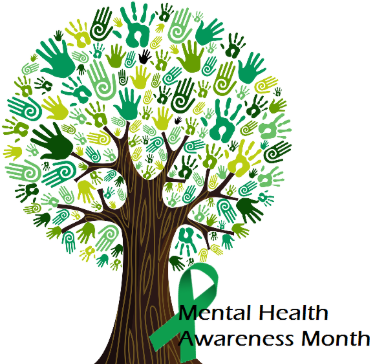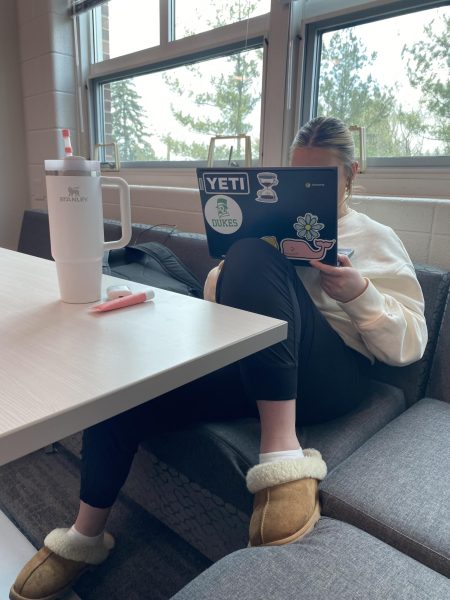Gratitude for the little things and how to find it

Photo Courtesy of Charles River Community Health
May is mental Health awareness, so enjoy some tips to make the most of it.
I find it almost ironic Mental Health Awareness Month is May, the season of AP tests, postseason sports, finals and standardized testing induced stress. While cramming in homework, end of year essays and mountains of studying, we seem to run out of time for sleep — nonetheless having time to discover an increased awareness of our mental health. Despite the irony, however, placing an extra emphasis on our mental health may be quite beneficial.
The English department has seemed to embrace this, with some AP Language classes instating “mindful moments”.
“I’ve read a lot of research on how stress and anxiety negatively affect not only a person’s ability to learn, but also their well-being in general,” English teacher Erin O’Connor said. “In our society and in school, we move so fast, and we are always concentrating on the next thing, the next challenge, the next step. It is very rare that we find time to pause, reflect, and ask ourselves how we are feeling. This being so, I made it a goal this year to focus on fostering mindfulness in the classroom and providing students a space to pause, reflect and be proud of themselves.”
Mindfulness has been proven to be highly effective in reducing general stress but also coping with mild bouts of anxiety or depression. A study was conducted by Judith Moskowitz of Northwestern University on this topic. In her study, NPR reported, participants took a five week course where they were taught eight coping skills. After learning and using these skills, anxiety symptoms in patients decreased by 14 percent and depressive symptoms decreased by 16 percent.
In honor of Mental Health Awareness month and the anxiety of getting through the last stress inducing tasks of school before summer finally sets in, we’re bringing these eight techniques to you. Moskowitz makes it clear it is “a buffet” of skills that reduces stress and depression rather than practicing just one. So, feast away to help build gratitude, optimism and groundedness:
- Each day, spend a moment identifying one positive event of the day.
- When something positive happens, tell someone or share the moment on social media to help you savor it a little longer.
- Us a gratitude journal. Every day, right down one little thing that you’re thankful for, like a good song, scrunchies, the perfect cup of coffee, sunshine, the sunset, fresh fruit or a nice workout.
- Know and recognize your strengths. Make notes of when you use a strength you’re proud of during the day. Maybe you made someone laugh, aced a homework assignment or had a great play.
- Set a simple goal for the day. Progressing towards something has been shown to increase positive emotions.
- We all have something daily that feels like an inconvenience or a hassle, but going through the exercise of framing it in a positive light can make a mood booster out of nuisance. That walk from gym to the third floor, turn that into your time to mind out and listen to a calming playlist. Appreciate the time to yourself.
- Consciously do something kind for someone else once a day.
- Practice Mindfulness. Spotify Playlist, Guided Meditations for Sleep, includes relaxing affirmations that are simple ways to bring mindfulness into your life without snatching up precious time.

Paige Szipszky is very excited to be the Editor-in-Chief of This is York and York-Hi this year. This is her sixth year being involved in student media,...















